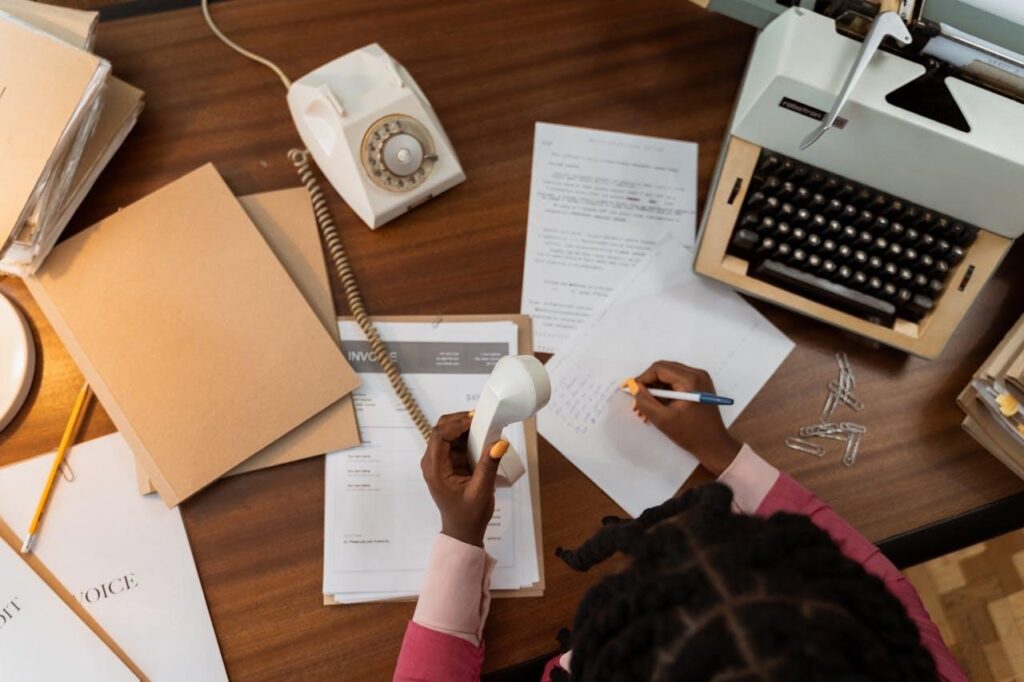Can I Write My Own Will and Have It Notarized in Colorado?

Many people don’t realize that in Colorado, you can legally write your own will without an attorney. While it’s true that having your will notarized isn’t a requirement, doing so can add an extra layer of protection against potential disputes down the line. To ensure your will holds up in court, you’ll need to follow specific legal guidelines. But what steps do you need to take to craft a valid document that truly reflects your wishes? Understanding these elements can help you navigate the process more effectively.
Key Takeaways
- Yes, you can write your own will in Colorado as long as it complies with state legal requirements.
- The will must be written, and oral wills are not recognized in Colorado.
- Notarization is not required for a valid will but can enhance its acceptance during probate.
- Ensure the will is signed by at least two witnesses who are 18 years or older and not beneficiaries.
- Consider consulting legal resources or professionals to ensure your DIY will is valid and comprehensive.
Understanding Wills in Colorado
 Understanding the intricacies of wills in Colorado is essential for anyone looking to ensure their wishes are honored after their passing. Making a will in Colorado involves several key considerations, including the type of will you choose to create.
Understanding the intricacies of wills in Colorado is essential for anyone looking to ensure their wishes are honored after their passing. Making a will in Colorado involves several key considerations, including the type of will you choose to create.
Whether you opt for a traditional approach or wish to do it yourself, it’s crucial to understand the legal implications and requirements involved.
Creating a will by yourself can be an efficient and cost-effective solution for those who wish to draft their own documents. However, it’s important to ensure that your will is clear, comprehensive, and adheres to state laws.
When crafting your will in Colorado, you’ll need to clearly outline how your assets will be distributed, designate beneficiaries, and appoint an executor to manage your estate.
While you might feel confident in drafting your own will, consider the complexity of your estate. For straightforward situations, a DIY will may suffice.
However, if your estate involves significant assets or complex family dynamics, consulting with a legal professional is advisable. This ensures that your will meets all requirements, ultimately safeguarding your intentions for your loved ones.
Legal Requirements for Wills | Write My Own Will

In Colorado, there are specific legal requirements you must meet when creating a will to ensure it’s valid and enforceable. First, you need to be at least 18 years old and of sound mind when drafting your will. This means you should understand the nature of the document and the consequences of your decisions.
Your will must be written, either typed or handwritten. Oral wills are generally not recognized in Colorado. It’s essential to clearly identify yourself in the document, stating your full name and address.
Additionally, you must name an executor, who’ll be responsible for administering your estate according to your wishes. You must also sign the will in the presence of at least two witnesses, who are at least 18 years old and not beneficiaries of the will.
These witnesses must also sign the document, affirming they witnessed your signing. While notarization isn’t required, having your will notarized can enhance its credibility and streamline the probate process.
How to File a Will in Colorado

Creating your own will can be a straightforward process if you follow the necessary steps.
- First, begin by determining your assets, including property, bank accounts, investments, and personal belongings. Make a comprehensive list so you know what you want to address in your will.
- Next, decide how you want to distribute your assets. Clearly specify who’ll receive what, and consider including alternate beneficiaries in case your first choice is unavailable.
- Then, choose an executor. This person will be responsible for ensuring your wishes are carried out, so select someone trustworthy and organized.
- After that, draft the will. Use clear and concise language, and ensure you meet Colorado’s legal requirements, which include being at least 18 years old and of sound mind.
You can use templates or online resources to assist with the language.
Do Wills Have to Be Notarized in Colorado?

Notarizing your will is not necessary to create a valid will in Colorado but it significantly bolsters its validity and acceptance in legal proceedings. When you have your will notarized, it serves as an official verification of your identity and the authenticity of your signature. This process helps to eliminate potential disputes regarding the will’s legitimacy, as the notary public confirms that you signed the document willingly and without duress.
Moreover, a notarized will often carries more weight in court, as it demonstrates that you took the necessary steps to ensure its proper execution. This added layer of credibility can be particularly beneficial if your will is ever contested by heirs or other interested parties. In such cases, the notarization may deter challenges based on claims of fraud or undue influence.
Additionally, notarization provides a safeguard against potential issues arising from lost or misplaced documents. Having a notarized copy can streamline the probate process, making it easier for your loved ones to navigate the complexities of estate administration.
Ultimately, investing in notarization when drafting your will can provide peace of mind, ensuring that your final wishes are respected and upheld.
Colorado Notary Public Guidelines

Understanding the guidelines for notary publics in Colorado is essential for ensuring that your will is properly executed. In Colorado, a notary public must be appointed by the Secretary of State and fulfill specific requirements. You need to ensure that the notary is actively commissioned and has a valid identification document when you present your will for notarization.
The notary’s role is to verify your identity and confirm that you’re signing the document willingly and without any undue influence. To facilitate this process, you should bring an acceptable form of ID, such as a driver’s license or passport. It’s also important to sign your will in the presence of the notary.
Additionally, Colorado law allows for remote notarization, enabling you to complete the process via video conference. However, both you and the notary must adhere to the specific technical requirements set forth by the state.
Always remember that notarization adds an extra layer of authenticity to your will, which can be crucial during probate. By following these guidelines, you can ensure that your will is executed correctly and stands up to any potential legal scrutiny.
Colorado Last Will and Witness Requirements
To ensure your will is legally binding in Colorado, you must also consider the witness requirements. Colorado law mandates that you have at least two witnesses present when you sign your will. These witnesses must be at least 18 years old and of sound mind.
It’s crucial that they aren’t beneficiaries of the will, as this could create conflicts of interest and potentially invalidate the document. When selecting your witnesses, choose individuals who can attest to your mental capacity and understanding of the will’s contents.
Their role is to confirm that you signed the will voluntarily and that you were competent at the time of signing. It’s advisable to have your witnesses sign the will in your presence and in the presence of each other to strengthen its validity.
Additionally, while notarization isn’t a requirement for all wills in Colorado, having your will notarized can further enhance its credibility.
Common mistakes people make in DIY wills.
When creating a DIY will, many individuals inadvertently overlook critical elements that can jeopardize its validity. One common mistake is failing to include all necessary components, such as a clear declaration that the document is a will, your full name, and your signature. Without these, your intentions may be misinterpreted.
Another frequent error is neglecting to properly identify beneficiaries. It’s essential to specify who’ll inherit your assets and to provide full names and relationships to avoid confusion. Additionally, many people forget to appoint an executor, which can lead to disputes and delays in managing your estate.
Lastly, keep in mind that language matters. Using ambiguous terms or vague descriptions can lead to misinterpretations of your wishes. Always strive for clarity and precision in your wording to ensure your intentions are unmistakable.
Storing Your Will Safely

After drafting your will and ensuring it meets all legal requirements, the next step is to store it safely. Proper storage is crucial, as your will must be easily accessible when needed.
Consider placing it in a fireproof and waterproof safe at home to protect it from damage. Alternatively, you can store your will in a safe deposit box at your bank, ensuring it remains secure and private.
Inform your executor and close family members about the location of your will. This step is essential, as they may need to access it quickly upon your passing. If you choose to store your will in a safe deposit box, provide a trusted person with access information to avoid complications during probate.
Avoid leaving your will in places where it can be easily misplaced or damaged, such as drawers or folders prone to wear.
Additionally, consider making copies of your will, but remember that only the original document holds legal weight.
Revoking or Updating Your Will

Updating or revoking your will is an essential part of ensuring that your final wishes reflect your current circumstances and intentions. Life changes, such as marriage, divorce, the birth of a child, or the acquisition or loss of significant assets, may necessitate modifications to your will.
It’s crucial to review your document regularly and make adjustments as needed.
To revoke an existing will in Colorado, you have a few options. You can create a new will that explicitly states your intention to revoke the previous one.
Alternatively, you can physically destroy the old will, but it’s advisable to do this in a manner that’s clear and indisputable.
If you choose to update your will, ensure that the changes are made in writing and comply with the legal requirements for will execution.
Who Can Help With Making a Will?

Creating a will can be a complex process, but you’re not alone in this endeavor. Various professionals can assist you in crafting a legally sound document tailored to your needs.
First, consider consulting an estate planning attorney. These specialists understand the intricacies of the law and can help ensure your will adheres to Colorado regulations, safeguarding your wishes.
Alternatively, you might choose to work with a financial planner or a trust officer, particularly if your estate involves significant assets or complicated financial matters. Their expertise can guide you in structuring your will effectively, maximizing benefits for your beneficiaries.
If you prefer a more budget-friendly option, many nonprofit organizations offer workshops and resources on will preparation. These sessions often provide valuable information and templates that you can use to draft your will independently.
Consult With an Estate Planning Attorney
Consulting an attorney when drafting your will can be invaluable, especially if your estate involves complex assets or specific wishes. As an experienced estate planning attorney, our team can help guide you through the intricate legal requirements that govern wills in Colorado, ensuring that your document complies with state laws.
An estate planning attorney can help you identify potential issues, such as tax implications or the need for trusts, which may significantly impact your estate.
Moreover, an attorney can tailor your will to reflect your unique circumstances, incorporating specific bequests, guardianship provisions for your children, or other personalized directives. They can also provide insight into alternative estate planning tools, such as living trusts, which may offer additional benefits.
While you may consider a DIY approach, the complexities of estate law often necessitate professional guidance. An attorney can help you avoid common pitfalls that could invalidate your will or lead to disputes among heirs.
Ultimately, investing in legal assistance can provide peace of mind, ensuring your wishes are clearly articulated and legally enforceable. By consulting an attorney, you position yourself to navigate the estate planning process with confidence and clarity.
Frequently Asked Questions
Can I Use an Online Template to Create My Will in Colorado?
Yes, you can use an online template to create your will in Colorado. Just ensure it meets state requirements, including proper signatures and witnesses, to ensure it’s legally valid and enforceable.
How Much Does It Cost to Notarize a Will in Colorado?
Notarizing a will in Colorado typically costs between $5 and $15 per signature. Interestingly, over 60% of people haven’t made a will, highlighting the importance of considering notarization for your estate planning needs.
What Happens if My Will Is Not Notarized?
If your will isn’t notarized, it may still be valid, but proving its authenticity could become challenging. Courts may require additional evidence to establish its legitimacy, potentially complicating the probate process for your estate.
Is a Handwritten Will Valid in Colorado?
Yes, a handwritten will, known as a holographic will, is valid in Colorado if it’s entirely in your handwriting and signed. Just ensure it clearly expresses your intentions regarding asset distribution and beneficiaries.
Consider Hiring Legal Help
In conclusion, you can confidently write your own will, ensuring it meets all legal requirements, then enhancing its validity through notarization. While you might worry about the complexity of the process, remember that taking control of your legacy brings peace of mind for both you and your loved ones. By creating a clear and legally binding document, you can alleviate uncertainties and provide security for your family, making your wishes known when it matters most. Book a free consultation with the attorneys at Birch Grove Legal located in Castle Rock, CO. We’d love to hear from you!
[trustindex no-registration=google]






0 Comments